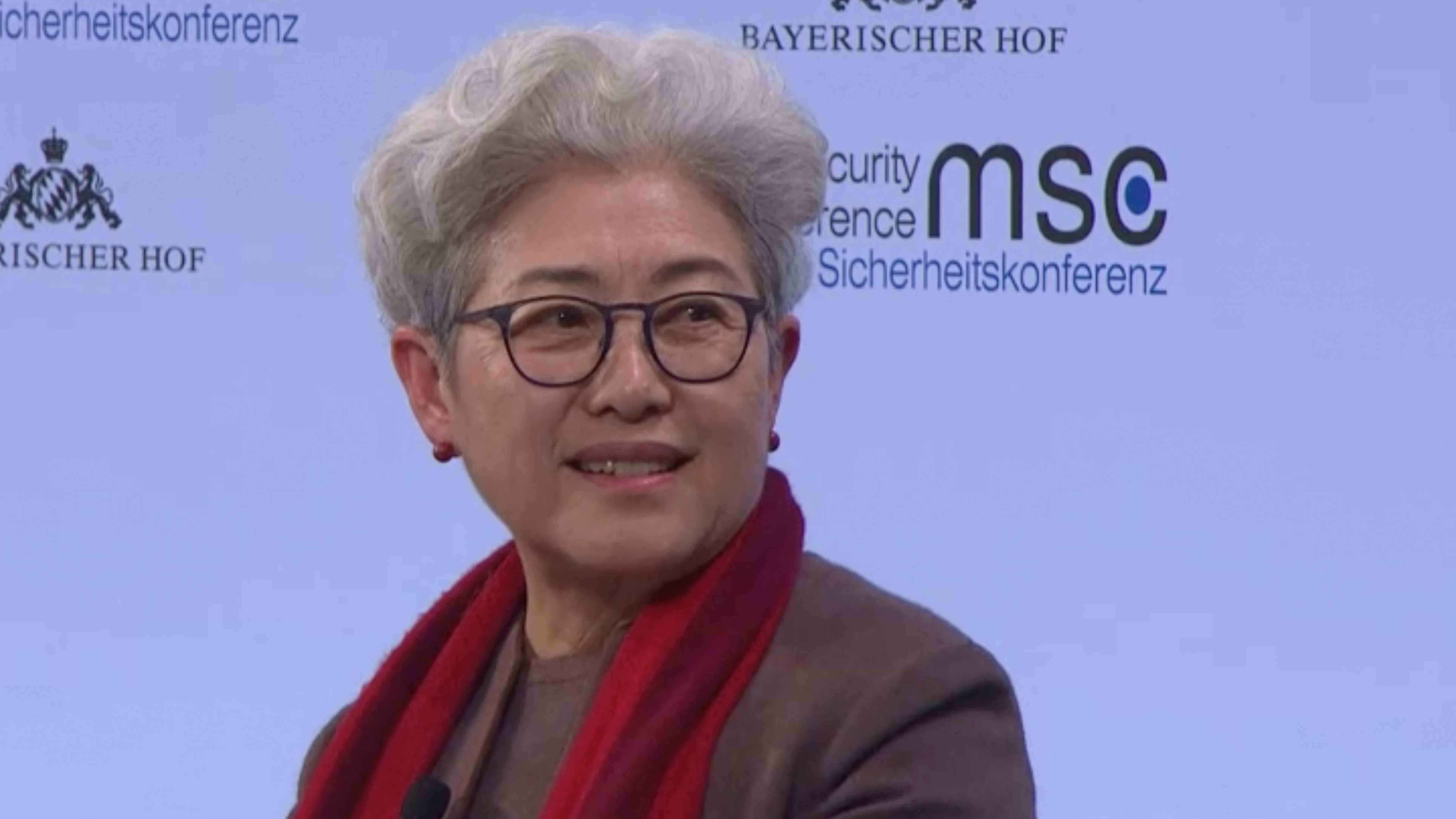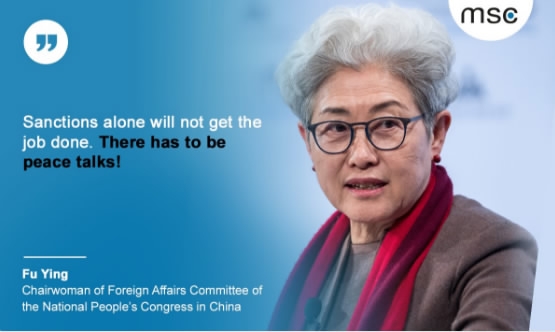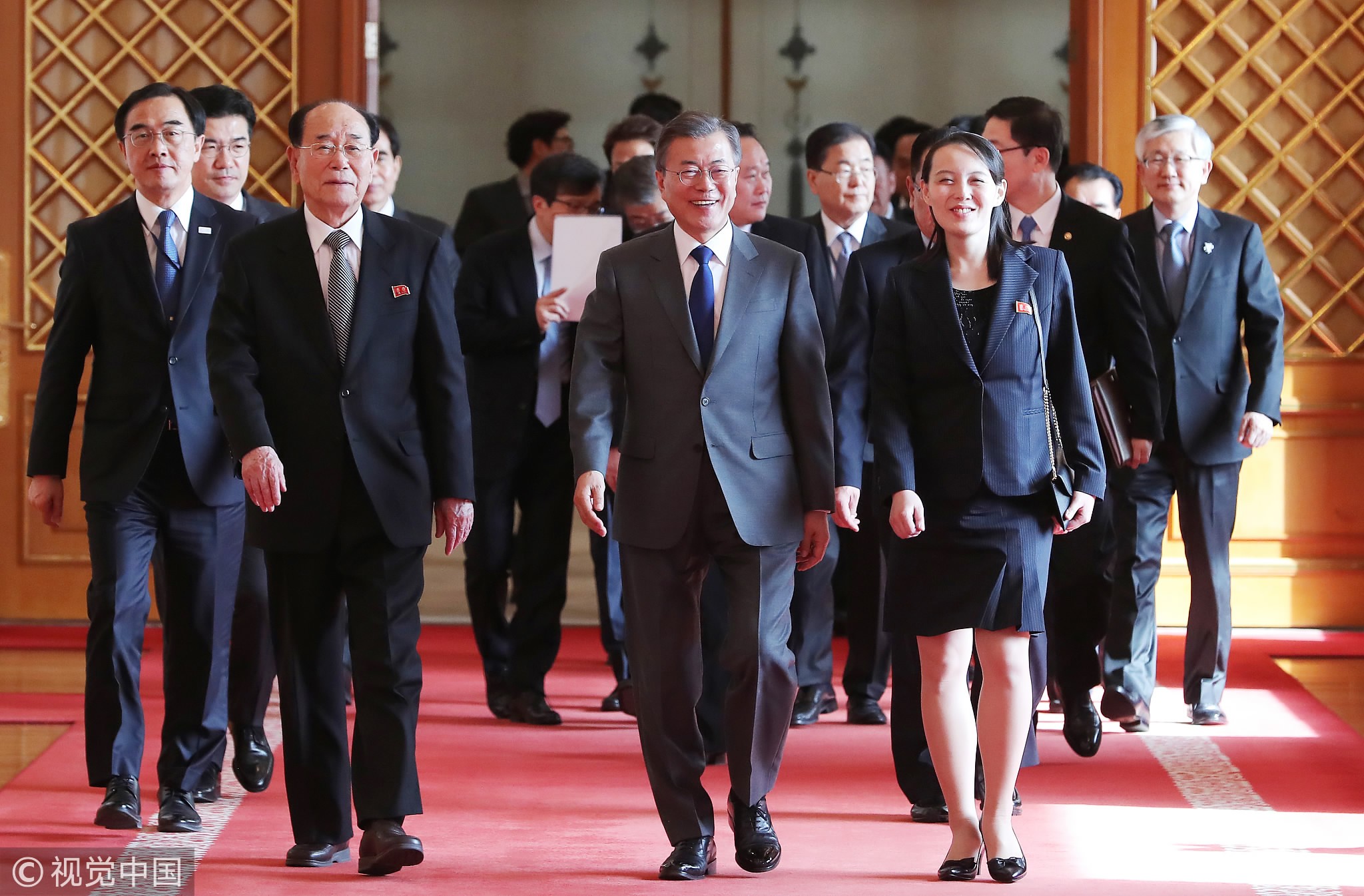
Politics
23:33, 17-Feb-2018
Chinese senior official: DPRK sanctions necessary, but…
CGTN

China views sanctions on the Democratic People's Republic of Korea (DPRK) as necessary, but sanctions alone will not end Korean Peninsula nuclear tensions, Chinese senior official Fu Ying said during the Munich Security Conference (MSC) on Saturday.
Fu, chair of the Foreign Affairs Committee of the National People's Congress, China’s legislative body, made the remarks during a panel discussion on nuclear security at the MSC.
Answering a question on the roles of China and the US on the Korean Peninsula tension, Fu said China and the US agree on many aspects.
"We believe there should be no nuclear weapons. We hope to see a peaceful Korean Peninsula… Sanctions are necessary, but they alone will not get the job done. There has to be peace talks!" she said.

Chinese chairperson of the Foreign Affairs Committee of the National People's Congress Fu Ying spoke at the Munich Security Conference (MSC) in Germany, February 17, 2018. /Photo via the MSC website
Chinese chairperson of the Foreign Affairs Committee of the National People's Congress Fu Ying spoke at the Munich Security Conference (MSC) in Germany, February 17, 2018. /Photo via the MSC website
Both the DPRK and the US need to get on board if this is to happen, according to Fu. "I think there is a hope at talks. I hope the US will make up its mind... Both sides need to make an effort. One-sided effort will not be enough. Both sides need to trust each other," she said.
Her comments echoed a strategy paper she wrote for US think tank the Brookings Institution in May 2017. In "The Korean nuclear issue: Past, present, and future – A Chinese perspective," she suggested that serious negotiations "may ease or even resolve" the issue.
Interviewed by China Central Television (CCTV) during the MSC, Fu said the PyeongChang Winter Olympics had provided a great opportunity to resolve the Korean Peninsula nuclear crisis.
The Games have seen a significant inter-Korean detente after the DPRK sent 22 athletes to compete in a unified squad with the Republic of Korea (ROK) as well as an art troupe, cheerleaders, and a delegation of top officials. Kim Yo Jong, younger sister of DPRK leader Kim Jong Un, became the first member of the ruling family to visit the ROK in more than 70 years and delivered an invitation from her brother for ROK President Moon Jae-in to visit the DPRK for talks.
"The Republic of Korea is not the principal part of the Korean Peninsula nuclear tension,” Fu told CCTV. “Solving the problem requires both the DPRK and the US to have peace talks… China hopes and will keep making efforts to help solve the Korean Peninsula nuclear tension through peace negotiations."

The DPRK leader's sister and special envoy, Kim Yo Jong, and the DPRK's ceremonial head of state, Kim Yong Nam, walk with ROK President Moon Jae-in to attend a luncheon in Seoul, the ROK, February 10, 2018. /VCG Photo
The DPRK leader's sister and special envoy, Kim Yo Jong, and the DPRK's ceremonial head of state, Kim Yong Nam, walk with ROK President Moon Jae-in to attend a luncheon in Seoul, the ROK, February 10, 2018. /VCG Photo
Fu also met with Choo Mi-ae, chief of the ROK's ruling Democratic Party, on the sidelines of the MSC, according to Yonhap News. Choo has called for China to play a more significant role in resolving the DPRK nuclear tension.
"China has played the role of mediation for a long time and as such, we expect China to exert great power of persuasion," Choo said during the meeting.
She also explained the ROK president's administration wants the DPRK and the US to resume dialogue over the nuclear programs, possibly before the proposed top-level talks between the North and the South.
Fu praised fresh inter-Korean reconciliation through the Winter Olympics. "As long as the PyeongChang spirit holds, peace will be guaranteed and much can be achieved. I hope Seoul leverages the improved inter-Korean ties to play a mediator's role in the international community," she told Choo.
Other issues were covered in the MSC panel discussion, including Asian-Pacific regional security and China-US relations.
The MSC takes place from Friday to Sunday with key focuses on the Korean Peninsula, defense cooperation in the EU, and NATO and US foreign policy. The conference has become the major global forum on security policy.

SITEMAP
Copyright © 2018 CGTN. Beijing ICP prepared NO.16065310-3
Copyright © 2018 CGTN. Beijing ICP prepared NO.16065310-3